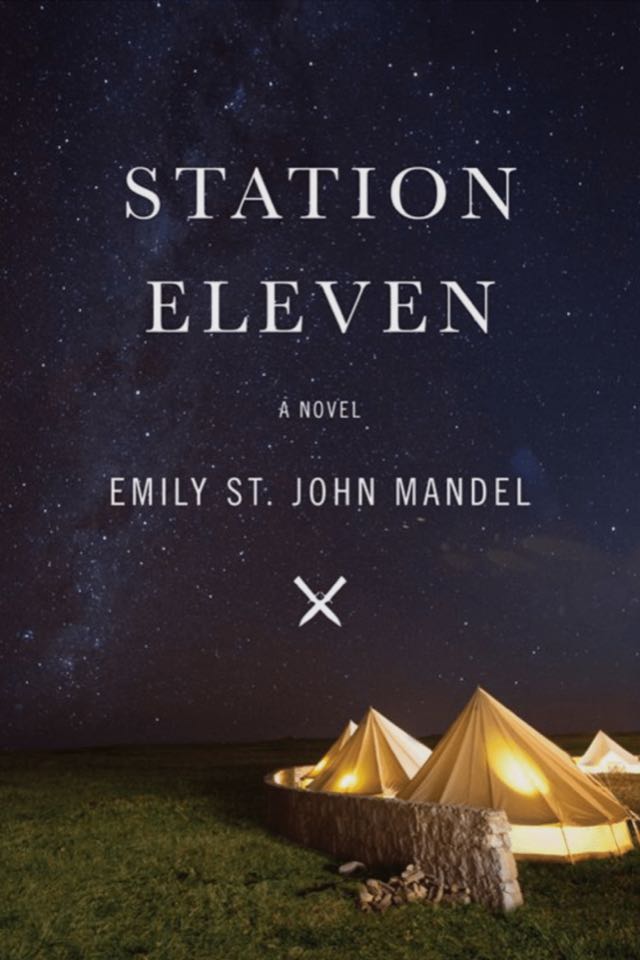Station Eleven
— Ilana Masad
For a while, dystopian fiction was taking over the literary market. Everyone was writing it and trying to sell it. The Hunger Games by Suzanne Collins, which came out a decade ago already (!!) was one of those books that seemed to open the floodgates and make general readership aware of the trend, but it was around both before and after. But like most trends, over the years it seems that readership—or maybe publishers—grew weary of dystopia. And as various governments clamped down on immigration and complained about refugees arriving from war-torn countries, and after Donald Trump was elected president in the US, where I live, well—dystopia feels very close by. If reading dystopia once felt like escapism, it now feels like all-too-possible prophecy.

All of which is to say that I was wary when I picked up Station Eleven by Emily St. John Mandel, which a dear friend had sent to my apartment, insisting that no one he knew should be deprived of it. I knew the general concept of the novel, having seen Mandel at a panel in New York City where she, along with Jeff VanderMeer, Alexander Weinstein, and Claire Vaye Watkins, discussed our current political climate and its similarities to various dystopian scenarios. What I didn’t know was what is, I think, the essential importance of the novel: it is dystopian, yes, but it is also hopeful.
Station Eleven opens with the end of the world as we know it. An epidemic is spreading, killing people within hours of exposure. There is no cure, because there’s no time to figure out what the disease even is. Within a few short weeks, it’s clear that the world will never be the same. It’s estimated that something like 99% of the world’s population has been killed. One of the novel’s threads follows closely a man named Javid, who is warned by a doctor friend of the seriousness of the situation; he fills up six grocery store carts with provisions and brings them all to his brother’s apartment building. Javid and his brother hole up, watching TV until the electricity dies, using their provisions sparingly, waiting, waiting.
A chapter that made my skin crawl then describes all the things that have disappeared from the world. Among them:
No more Internet. No more social media, no more scrolling through litanies of dreams and nervous hopes and photographs of lunches, cries for help and expressions of contentment and relationship-status updates with heart icons whole or broken, plans to meet up later, pleas, complaints, desires, pictures of babies dressed as bears or peppers for Halloween. No more reading and commenting on the lives of others, and in so doing, feeling slightly less alone in the room. No more avatars.
But, shockingly, despite this incredibly grim beginning, things begin to look up. Twenty years after the collapse of the modern world, a woman named Kirsten Raymonde is on the road with the Traveling Symphony, a group of musicians and actors who move from settlement to settlement, performing Shakespeare plays and musical entertainments. Their motto is a quote from a 1999 episode of Star Trek: Voyager—“Survival is insufficient.” It is not enough for the human race to survive, these musicians and actors (and, among them, a secret poet) know. It is not enough because it has never been enough. Since the dawn of humankind, art has been a vital part of what makes us human. Ancient cave drawings, decorative carvings on tools, and early musical instruments prove this to us.
Station Eleven’s plot moves back and forth in time, and has several plotlines that thread together beautifully. There is a cult—because part of being human is, too, the struggle for power and dominance. There is love—because love is deeply human and necessary. There are couples and families and babies being born in this new world. And there is a museum that attempts to preserve things from the world that was, so that we don’t forget what we had, what we lost.
For anyone terrified of the end of the world, this is the book to read.